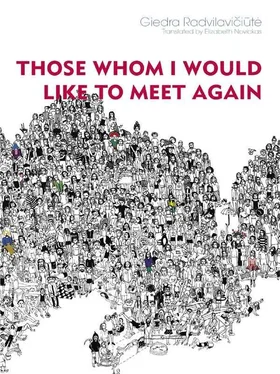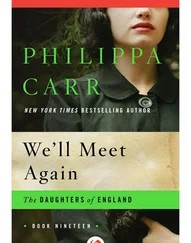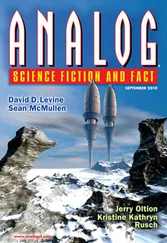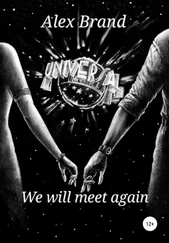Giedra Radvilaviciute
Those Whom I Would Like to Meet Again
The Native Land and Other Connections
On October 8, during the elections, I had to sign a declaration before they would let me vote. Then this Mindaugas, a Harvey Keitel look-alike temporarily working on the voting commission, figured out that I had been left off the regular list because I’d voted in Chicago during the Seimas election in 1996. In Lithuania, your own people can start to feel like strangers very quickly, and it takes a long time to make a stranger one’s own again. A few years back, when I realized I could spend the rest of my life in America, it was fall. Silky ducks embroidered with green and brown threads swam in the Vilnel  River. Next to the Church of the Holy Mother of God in Užupis, the burdock from the Lithuanian writer Jurgis Kun
River. Next to the Church of the Holy Mother of God in Užupis, the burdock from the Lithuanian writer Jurgis Kun  inas’s 1983 novel T
inas’s 1983 novel T  la was in bloom. To change one’s circumstances (home is only one of them) is no great feat for a modern, rational person. You check the exchange rate. Have your cavities filled. Rent out your apartment. Compare ticket prices at LOT, SAS, and Lufthansa, and their respective menus as well — are vegetarian meals available? Before departing, you tell all your relatives what they already know: “I’m leaving all the worst things in my life behind in Lithuania.” (I heard precisely this several years ago, in Chicago, from a roofer in the suburbs. In Vilnius he had graduated from the Academy of Art.)
la was in bloom. To change one’s circumstances (home is only one of them) is no great feat for a modern, rational person. You check the exchange rate. Have your cavities filled. Rent out your apartment. Compare ticket prices at LOT, SAS, and Lufthansa, and their respective menus as well — are vegetarian meals available? Before departing, you tell all your relatives what they already know: “I’m leaving all the worst things in my life behind in Lithuania.” (I heard precisely this several years ago, in Chicago, from a roofer in the suburbs. In Vilnius he had graduated from the Academy of Art.)
However, a modern person and an old-fashioned one differ a great deal. They’re as unalike as the coat pockets of an old man and a young one. In the old man’s pocket, there’s usually a worthless bus ticket — the victim of rising prices — a few crumbs, and some little tufts of wool collected in Belgium or Germany (commemorative). In the young one’s pocket, there are tissues, keys, some chewing gum, and occasionally a condom (prospective). The non-modern man understands his native land the way Ruta understands her village in Olga Tokarczuk’s novel Primeval and Other Times . Approaching her imaginary village boundary, the girl stretches out her fingers, and it seems to her that the tips of her fingers disappear. Strangers who appear in the village are born at that boundary; it only seems as though they’ve come from somewhere else. The modern and the old-fashioned person even understand an ordinary sentence, made up of no more than a verb and a predicate—“it was fall”—differently. It was fall, the weather of memories, wrote the poet Alfonsas Nyka-Nili  nas. In the film À propos , returning to Lithuania in 1998, he walks the fields of his native land, and everything around looks entirely alien to him. While living in the U.S., one of the most important events of the last century — the Americans’ flight to the moon — didn’t make the least impression on him. The poet even thought it made for boring television, because the astronauts would never climb out onto the moon above the village of Nemeikš
nas. In the film À propos , returning to Lithuania in 1998, he walks the fields of his native land, and everything around looks entirely alien to him. While living in the U.S., one of the most important events of the last century — the Americans’ flight to the moon — didn’t make the least impression on him. The poet even thought it made for boring television, because the astronauts would never climb out onto the moon above the village of Nemeikš  iai. He wrote about Lithuania: “ There I extended nature and things, and nature and things extended me. Here I cannot make a living connection to either nature or things. That’s what bare and absolute exile is.” When you live in exile for a long time (even by choice), your native land becomes a souvenir. A tiny house in water under a glass dome. When you shake the dome, plastic snow falls (like real snow) on the cottage. A souvenir in a room (in memory) should have a strictly assigned spot; otherwise, it begins to get in the way. Sometimes people, not knowing how to live in the present tense as animals do, move in under that dome themselves. For some reason, leaving home is always purely material, whereas returning is always metaphysical. Like the river, it’s impossible to wade into the same native land twice. The sluice gates have closed; new connections have been made; there’s a gap between what a person experiences living in a strange place for so long a time, and what her native land might have experienced over that same period.
iai. He wrote about Lithuania: “ There I extended nature and things, and nature and things extended me. Here I cannot make a living connection to either nature or things. That’s what bare and absolute exile is.” When you live in exile for a long time (even by choice), your native land becomes a souvenir. A tiny house in water under a glass dome. When you shake the dome, plastic snow falls (like real snow) on the cottage. A souvenir in a room (in memory) should have a strictly assigned spot; otherwise, it begins to get in the way. Sometimes people, not knowing how to live in the present tense as animals do, move in under that dome themselves. For some reason, leaving home is always purely material, whereas returning is always metaphysical. Like the river, it’s impossible to wade into the same native land twice. The sluice gates have closed; new connections have been made; there’s a gap between what a person experiences living in a strange place for so long a time, and what her native land might have experienced over that same period.
CANDY
The first time you arrive to work in an American’s house is a bit scary. It’s particularly difficult to domesticate objects in English. People are much easier. Objects remain mute until you develop relationships with them. As Nabokov wrote about one character’s rented apartment, there was, in the study, a half-empty writing table with an unknown past and an unknown future. Modern people live their entire lives without ever speaking to their objects. They’re never scratched by an angry chair, they don’t drown in trenches of soft furniture, they aren’t seduced by slippery blankets, and old mirrors don’t challenge them to nighttime duels.
The old lady Candy’s basement in the suburbs of Chicago was full of things like that. After a heavy rain the basement would flood with water, so the bottoms of the old Italian furniture were splintered. The life of the old woman usually divided itself by floor. Youth was imprisoned in the basement, along with her wedding pictures in old photo albums; upstairs, a serene old age watched television. It was an eerie space, and so eerie things were bound to happen. One time, after a night in Candy’s house, the hands of a cheap Chinese clock started turning in the wrong direction. (Which might be, for all I know, the closest thing to a full-grown miracle I’ll ever experience.) Another time, in complete silence, and with no provocation, a six-foot square landscape of an Italian monastery fell off the wall. The string that had held it for several decades snapped precisely as I, the arrival from another continent, was making Candy some coffee. When I rode the train one Saturday evening from the suburbs into Chicago, the train went backward for ten minutes, as though a gigantic magnet were buried under the town, pulling the cars back to their point of departure as if they were no more than metal shavings.
Candy’s parents were Italians. She herself was born in America. Next to the old lady’s bed hung an article about her father, reproduced from an old newspaper. He sold papers at an intersection in Chicago’s Little Italy. Next to a photograph was a story about her father’s great good fortune in the New World. (I visited that intersection. No more stand. Only the same streets, where now, same as then, an immigrant can turn happily in all four directions.) Candy lived in that same Italian neighborhood when she was a kid. Those were the days of Al Capone. Mafiosi were distinguished from the other Italians by their good clothes and bad manners. Candy’s mother said, “If even one of them talks to you while you’re walking home from school, run into any stairwell and knock at any door.” I read in a book about Chicago’s Prohibition-era gangsters that one of Capone’s friends wore a diamond-studded belt that Capone had given him as a gift. Obviously, Capone didn’t acquire such a thing without “the spilling of blood.” When Capone was locked up for a year in Philadelphia for possession of a weapon, that friend, having lost his shining subsidy, offered his services to another gang. Later all the Mafiosi moved out to the suburbs. (Just like they do in Lithuania nowadays.)
Candy had been to Europe only once in her entire life. She went to her mother’s home, a small town next to Rome. Her mother’s brother still lived there. By then he was completely blind, but Candy said that when she saw him she thought her father had come back from the dead. And her dead father’s clothes she had brought from America fit her uncle perfectly.
Читать дальше

 River. Next to the Church of the Holy Mother of God in Užupis, the burdock from the Lithuanian writer Jurgis Kun
River. Next to the Church of the Holy Mother of God in Užupis, the burdock from the Lithuanian writer Jurgis Kun  inas’s 1983 novel T
inas’s 1983 novel T  la was in bloom. To change one’s circumstances (home is only one of them) is no great feat for a modern, rational person. You check the exchange rate. Have your cavities filled. Rent out your apartment. Compare ticket prices at LOT, SAS, and Lufthansa, and their respective menus as well — are vegetarian meals available? Before departing, you tell all your relatives what they already know: “I’m leaving all the worst things in my life behind in Lithuania.” (I heard precisely this several years ago, in Chicago, from a roofer in the suburbs. In Vilnius he had graduated from the Academy of Art.)
la was in bloom. To change one’s circumstances (home is only one of them) is no great feat for a modern, rational person. You check the exchange rate. Have your cavities filled. Rent out your apartment. Compare ticket prices at LOT, SAS, and Lufthansa, and their respective menus as well — are vegetarian meals available? Before departing, you tell all your relatives what they already know: “I’m leaving all the worst things in my life behind in Lithuania.” (I heard precisely this several years ago, in Chicago, from a roofer in the suburbs. In Vilnius he had graduated from the Academy of Art.) nas. In the film À propos , returning to Lithuania in 1998, he walks the fields of his native land, and everything around looks entirely alien to him. While living in the U.S., one of the most important events of the last century — the Americans’ flight to the moon — didn’t make the least impression on him. The poet even thought it made for boring television, because the astronauts would never climb out onto the moon above the village of Nemeikš
nas. In the film À propos , returning to Lithuania in 1998, he walks the fields of his native land, and everything around looks entirely alien to him. While living in the U.S., one of the most important events of the last century — the Americans’ flight to the moon — didn’t make the least impression on him. The poet even thought it made for boring television, because the astronauts would never climb out onto the moon above the village of Nemeikš 










